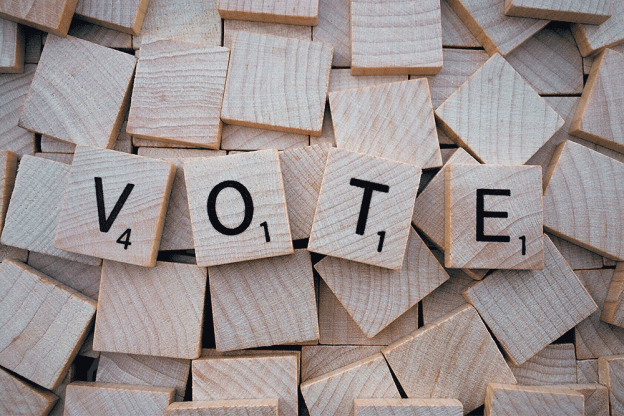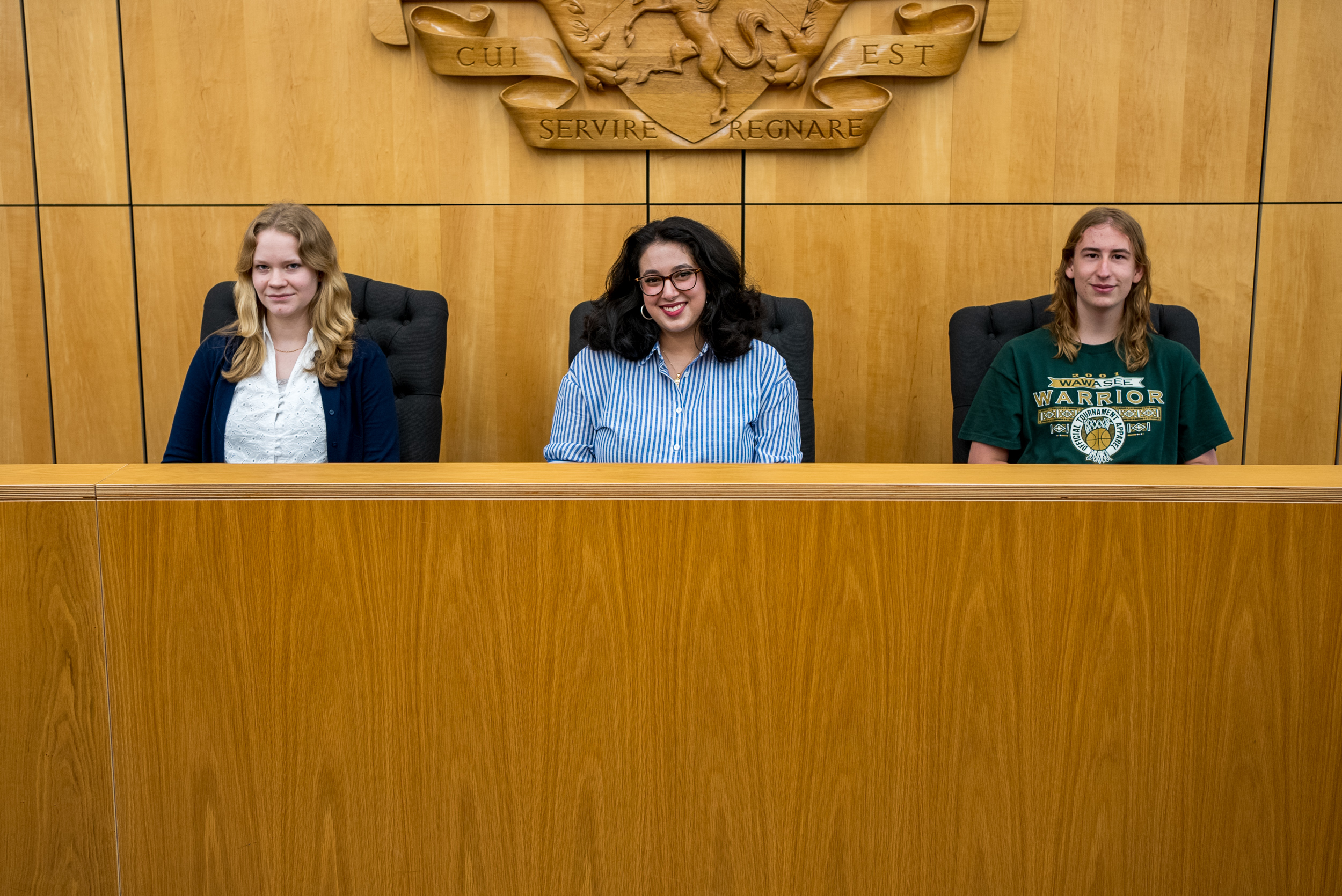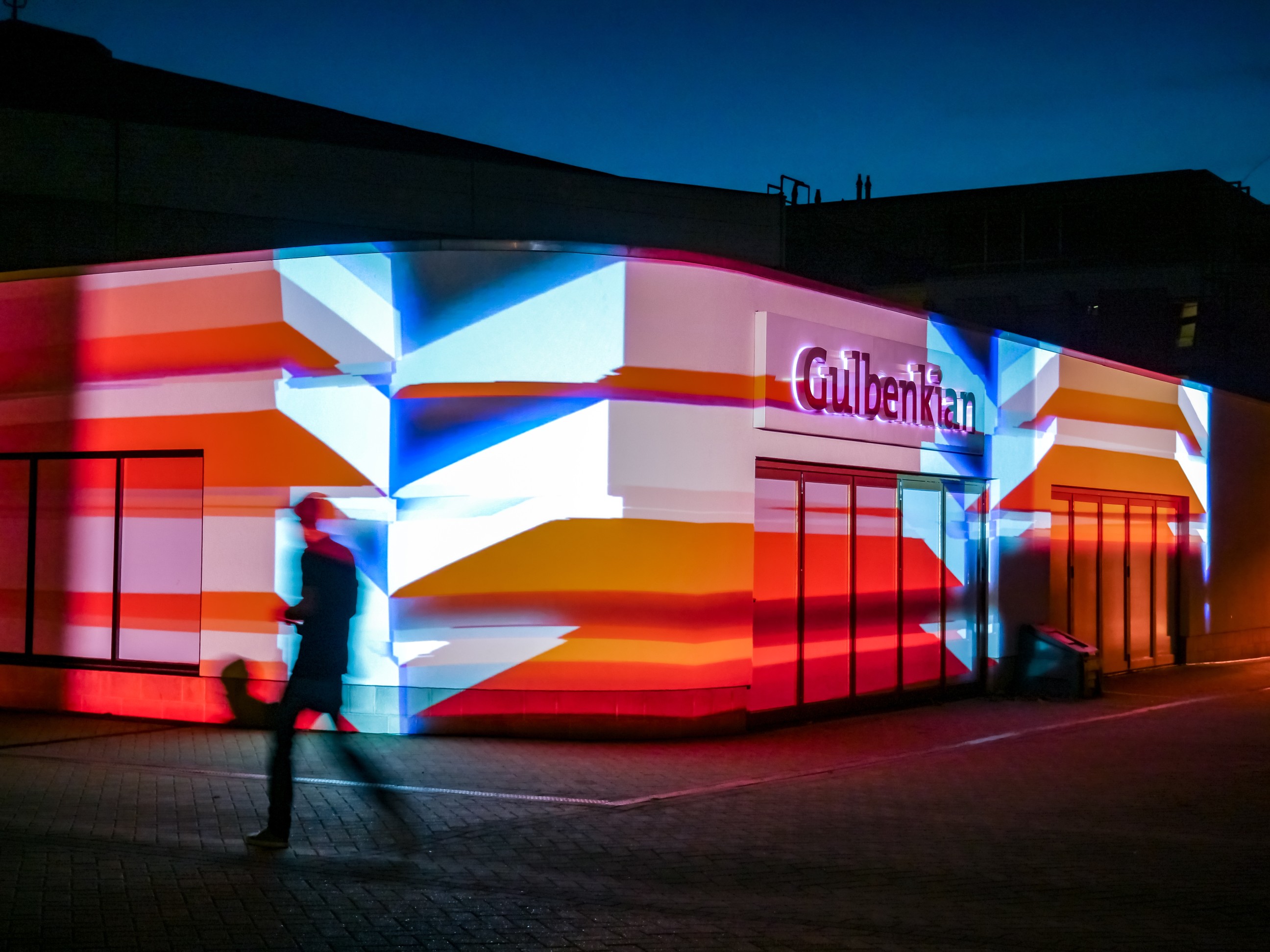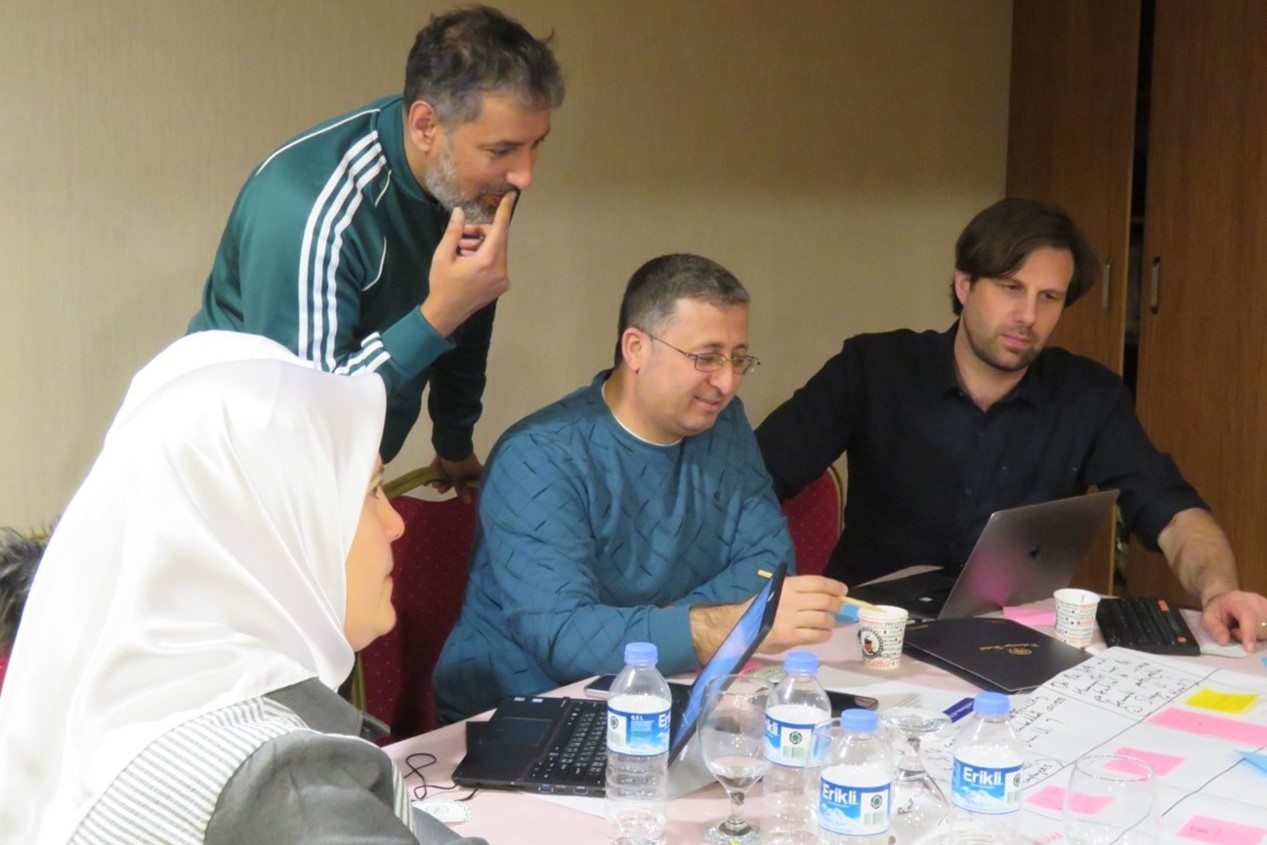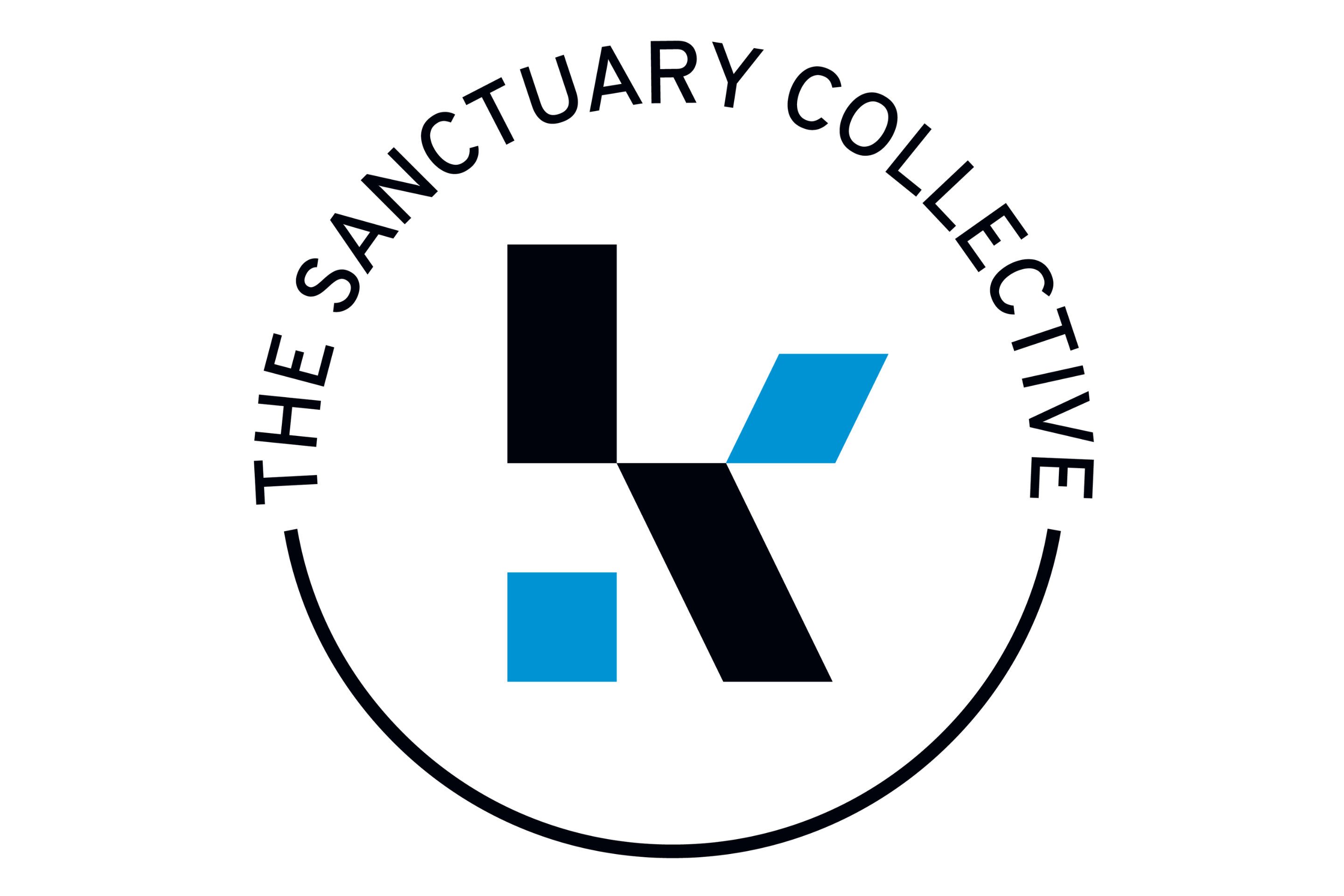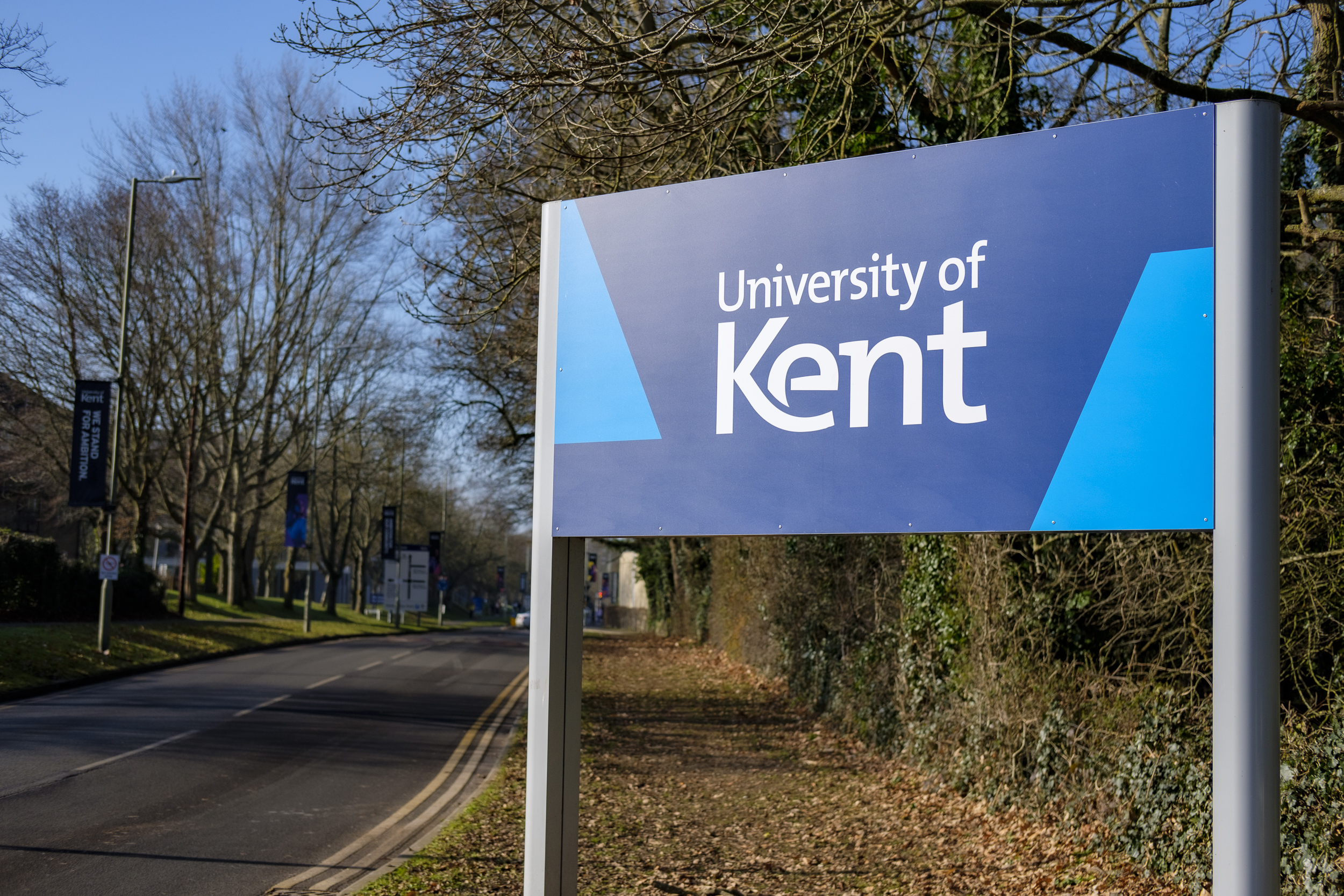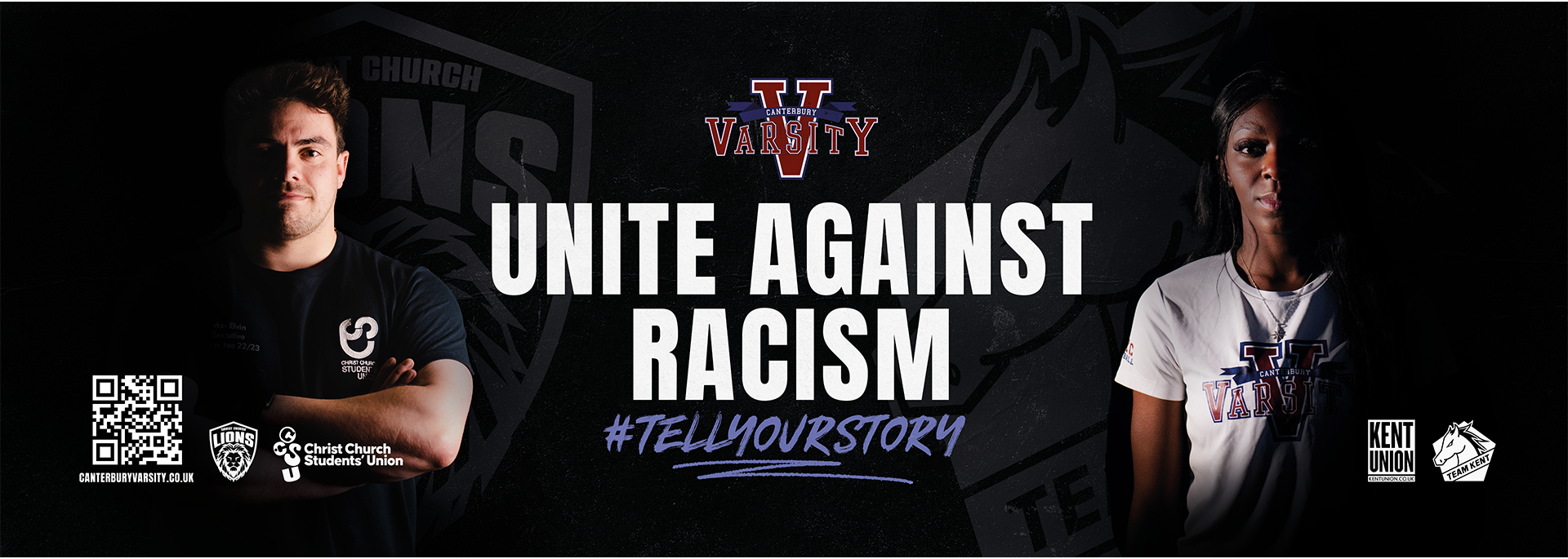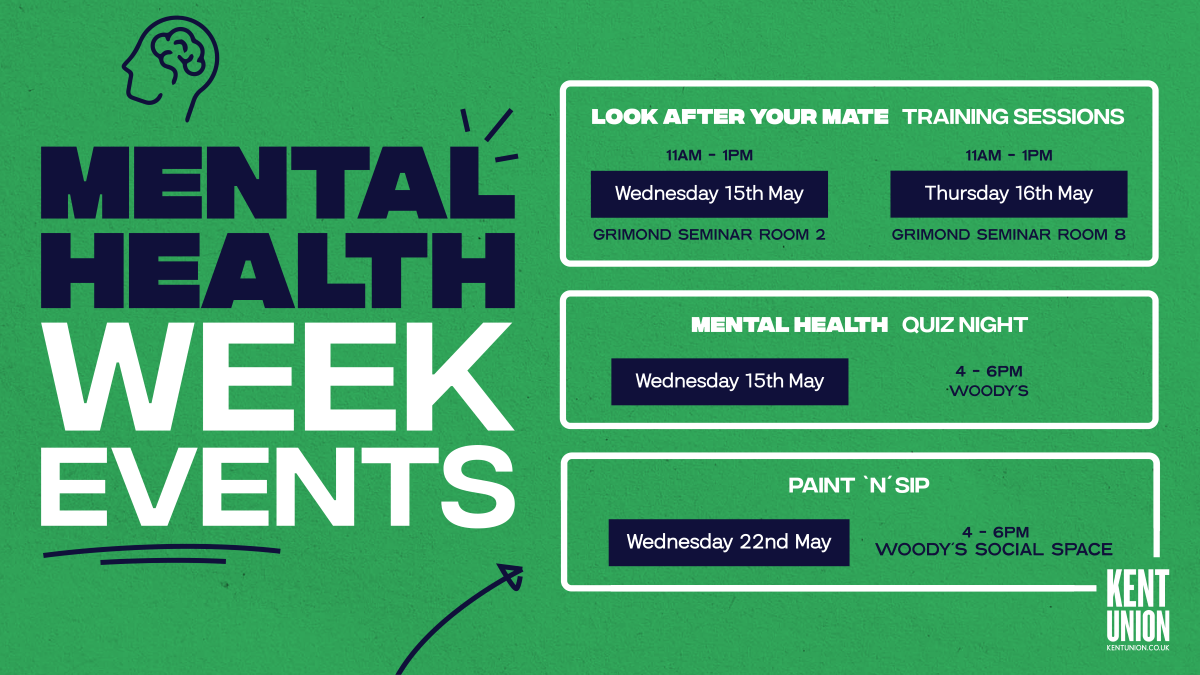This month’s Kent Stars are Politics and International Relations students Cassie, Sakina and Harry who were recently selected to take part in the Model NATO event in London. Hosted by the British International Studies Association (BISA), Model NATO offers an opportunity to experience how countries manage their responses to world events and the many challenges this brings. Hear from Cassie, Sakina and Harry:
Harry – “Hey! My name’s Harry and I’m a second year studying Politics and International Relations with Spanish, originally from Barbados. Besides getting up to stuff with friends, I really love to spend my time reading. Nowadays, it’s usually stuff related to my course but when I have time I enjoy fiction as well.”
Cassie – “Hi, I am Cassie, I am a second year Politics and International Relations Student at the University of Kent. I am particularly interested in British Politics as well as Current Affairs.”
Sakina – “My name is Sakina, and I’m currently a second-year undergraduate student studying Politics and International Relations. Alongside my academic pursuits, I have a keen interest in a variety of subjects, including political ideology and contemporary politics. Outside of the academic realm, I actively participate in extracurricular activities such as the equestrian society and have recently joined the Labour society. I am also a veracious reader.”
Tell us about your experience of the Model NATO event
Sakina – “Participating in the Model NATO event was an illuminating and rewarding experience. This simulation mirrors the workings of the North Atlantic Treaty Organisation, with students assuming the roles of representatives from different member countries to address pressing international issues. Through this immersive experience, I not only deepened my understanding of global politics and diplomacy but also honed essential skills such as negotiation and effective communication.
Collaborating with peers from diverse backgrounds fostered a rich exchange of ideas and perspectives, leading to a profound appreciation for the complexities of geopolitical discourse. Being awarded the most ‘Distinguished delegate’ certificate with my fellow team member Cassie, was such an incredible honour. Importantly, this event solidified my aspiration to pursue a career in international relations, underscoring the significance of such experiential learning opportunities in shaping one’s professional trajectory.”
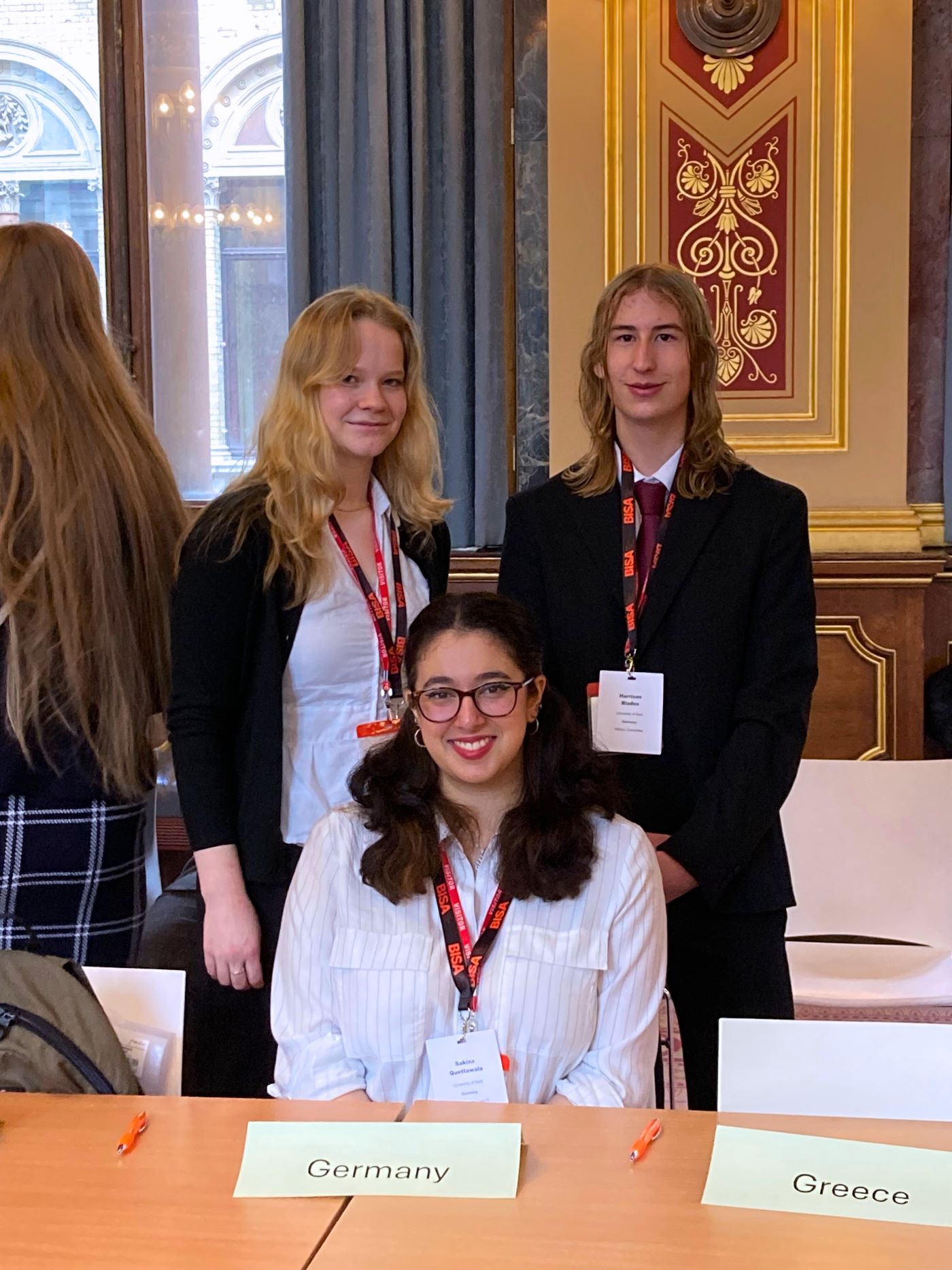
Harry – “The point of the Model NATO exercise was to craft a response to a humanitarian disaster in the Mediterranean caused by severe earthquakes. We sat in committees around a table alongside students from various other universities, each representing a different country within NATO. Together, we decide what we’re going to talk about, how we’re going to talk about it and in what order.
For each successive issue, everyone takes turns stating and arguing for their point of view, we discuss and negotiate and then eventually, attempt to find a response to that particular point that every single person agrees with. That’s how NATO functions in the real world, every country has to agree. This was quite tricky, and we often got bogged down in the precise wording of particular agreements or things that, when you consider that the hypothetical scenario we were dealing with already had thousands dead, seemed silly. Yet they weren’t because each country is supposed to guarantee their own interests. It did give a lot of perspective in terms of why negotiation between countries can often be so difficult and take so long. We were supposed to be helping people suffering from an earthquake and instead we ended up spending half the morning arguing about if we’d be able to use each other’s satellites. All in all, it was a great experience, it was a lot of fun, I met some cool people and I’d love to do it again.”
Cassie – “We were given the country of Germany, so beforehand we familiarised ourselves with German Capability and Interest in order to stay authentic as a delegation. By practicing our diplomatic skills, we had to collaborate with other delegations to achieve a resolution, which could only be achieved through full consensus. This was the root of much disagreement between delegations, particularly on the topic of priority setting. Many countries felt NATO should remain dedicated to Russian threat as a main priority, where others felt NATO should streamline capabilities in response to the unfolding disaster. This experience highlighted the importance of respecting ongoing geopolitical crises even when attempting to handle new critical disasters. The experience helped solidify my knowledge of international relations as well as helping grow my negotiating and problem-solving skills. At the end of the simulation, we were able to produce a comprehensive resolution to tackle the humanitarian crisis caused by the earthquakes.
Due to our extensive research and knowledge Sakina and I were delighted to be awarded the ‘Distinguished Delegation Award’ in the Military Committee, which is the first time a representation from Kent has won an award through the experience.”
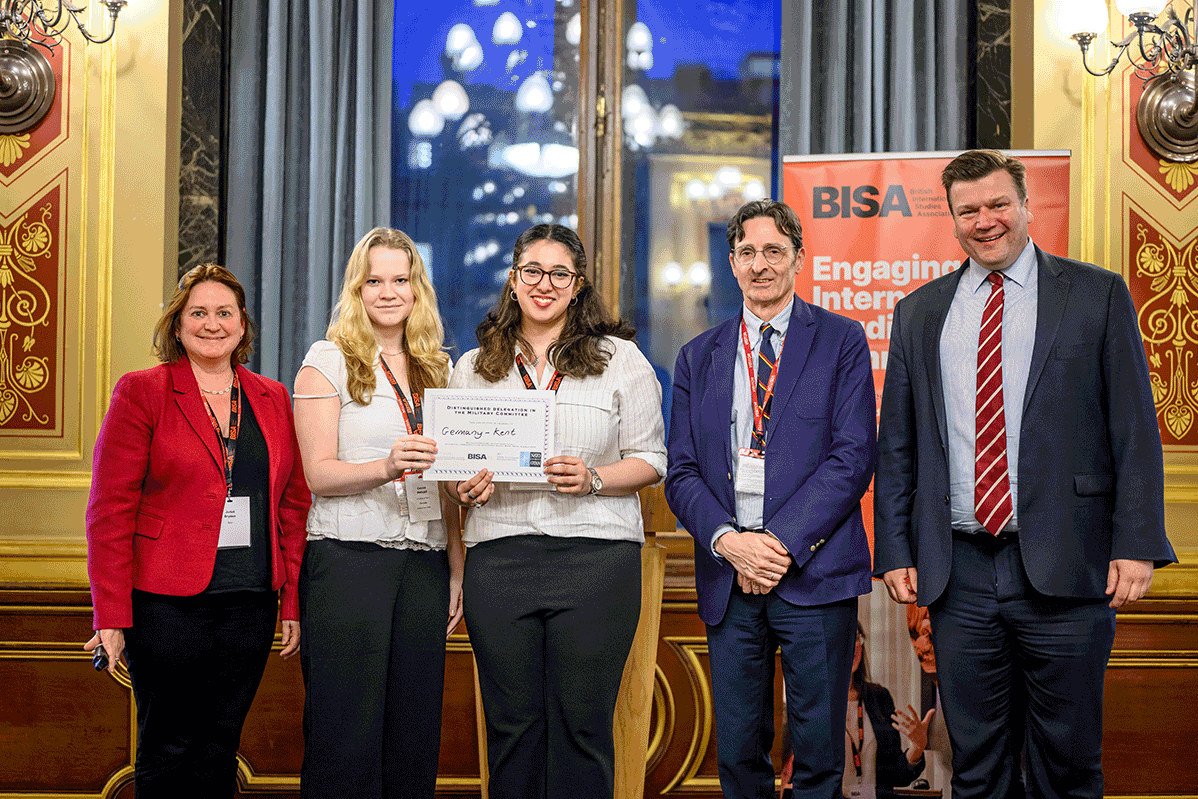
Cassie and Sakina receiving their award for “Distinguished Delegation in the Military Committee”, representing Germany.
What advice would you give to other students?
Cassie – “Though university is about getting a degree, there are so many opportunities outside of Academics, such as societies, conferences, or exciting events such as Model NATO. Though sometimes it takes a bit of time and effort to seek them out and apply, it is completely worth it.”
Harry – “It is always a good idea to find ways to improve your public speaking skills. It’s important now within university, in classes, to be able to express yourself and describe your understanding and your point of view. Wherever we all end up after university, it is always going to be helpful to be able to speak to a group of people and explain whatever it is you want to explain, clearly, concisely and convincingly. If you agree, you should try out Model UN, there’s a club for it on campus. I think it’s a great way to improve those skills and the club is filled with plenty of cool and friendly people, so, consider checking it out.”
Sakina – “My advice to fellow students is to actively seek out opportunities for experiential learning and personal development. Whether through participation in events like Model NATO, involvement in student clubs, or pursuit of internships, these extracurricular engagements offer invaluable avenues for growth and exploration. Embrace challenges, step out of your comfort zone, and seize every opportunity to broaden your horizons. My own journey exemplifies the transformative power of such experiences, as they not only enrich academic pursuits but also illuminate potential career paths and passions.”
What are your plans for next year?
Cassie – “My plans for next year include my continued involvement in political societies at the University, such as Model UN. I will be entering my third year so I hope to write a dissertation about British Politics.”
Harry – “This September I head to Madrid to do a year abroad for my course. It’s really scary and sad to say goodbye to friends I’ve made here at Kent. I’m definitely going to miss Canterbury and everyone in it over the next year. At the same time, I am definitely looking forward to meeting new people, finding new experiences and (hopefully) learning more Spanish in Madrid. One of the best things about moving to the UK has been learning to adapt to an entirely new environment, so I’m excited to be able to do that again.”
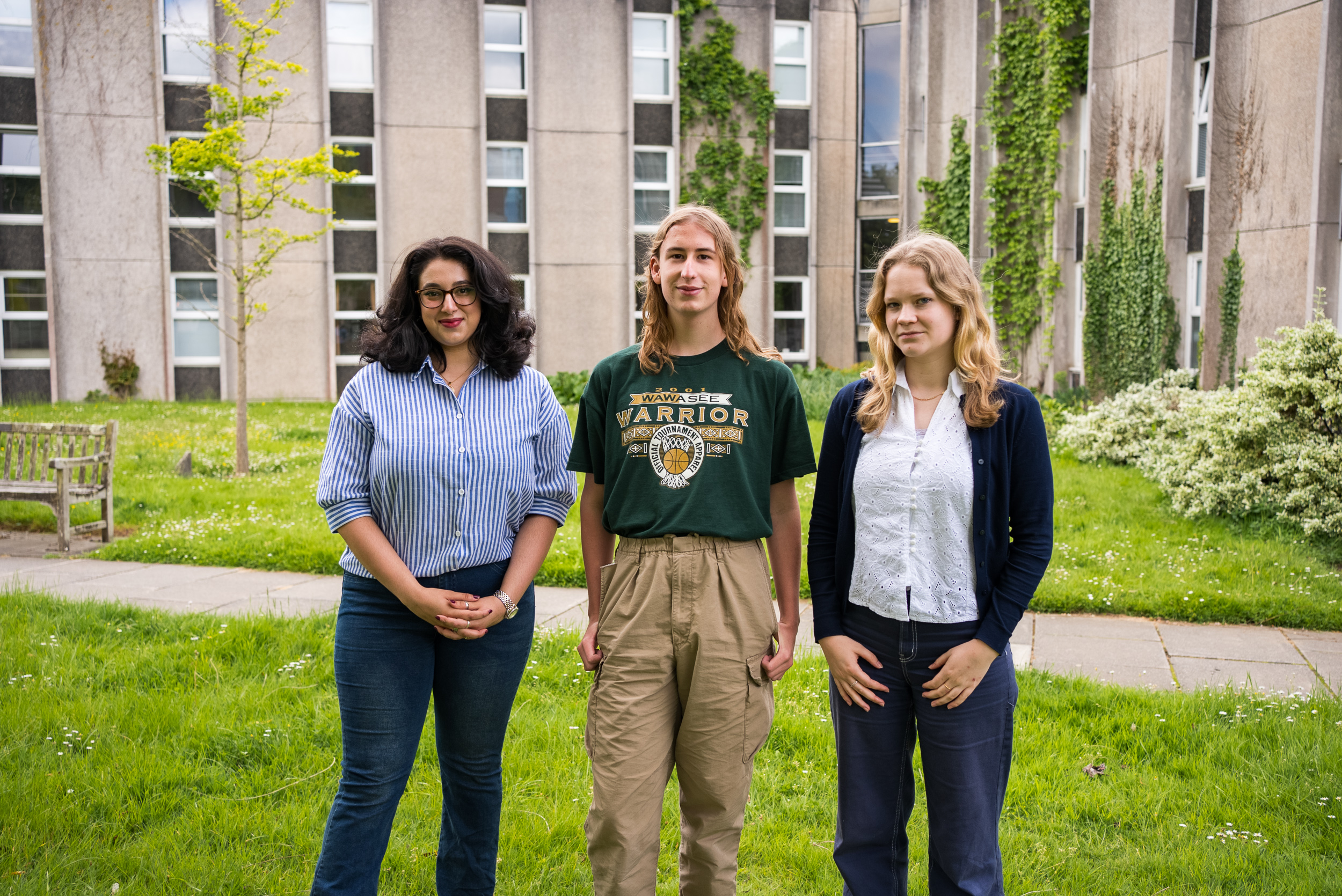
Sakina – “In the upcoming year, I am committed to furthering my understanding and expertise in the field of international relations. This entails pursuing internships or research opportunities aligned with my academic and career goals, thereby gaining practical insights, and forging valuable connections within the industry. Concurrently, I aspire to engage in meaningful community service initiatives, leveraging my skills and knowledge to effect positive change on a local and global scale. Additionally, I aim to embark on enriching travel experiences and cultural explorations to deepen my appreciation for global dynamics and diverse perspectives. These endeavors collectively serve as building blocks for my future, including potential postgraduate studies in a specialised area of international relations.”
Do you know an inspirational student or student group? Let us know.
Learn more about the Kent Stars campaign.
